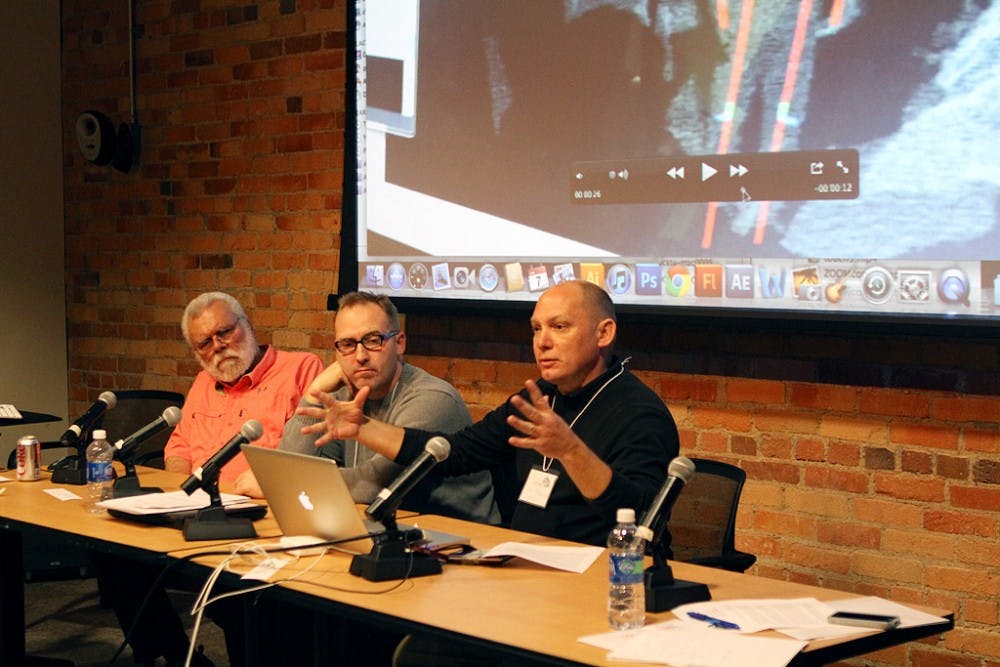This week dozens of students prowled the Bryan Center to view a series of art exhibits that brought creativity and technology together.
Over the past week, the Collaborations: Humanities, Arts and Technology project has lit up Duke. CHAT—a biannual festival that rotates between Duke, the University of North Carolina at Chapel Hill and North Carolina State University—presented more than 30 panel discussions, art displays and research projects that rely on digital technology, such as three-dimensional modeling for historical reconstruction and the creation of virtual reality games.
John McGowan, director of the Institute for the Arts and Humanities at UNC-Chapel Hill, said the purpose of the conference is to demonstrate the intersection between technology, arts and humanities.
“There is a growing sense that the work we’re doing in the humanities and the arts is being completely transformed by digital technology,” McGowan said.
That transformation is what inspired the creation of CHAT, said Victoria Szabo, director of the CHAT festival and assistant research professor in art, art history and visual studies.
“The motivation behind [CHAT] is really to create an environment where faculty from the Triangle can see each other’s work,” Szabo said. “The idea is to share unfinished ideas, finished ideas [and] projects that we’re working on.”
The nature of the conference allows educators from all over the Triangle to collaborate and network, but the conference is not geared specifically toward faculty. CHAT is also meant for students. Some students, for example, showcased their work with visual media, Szabo said.
“Often, it’s students showing faculty where to go and learn what’s possible,” Szabo added.
Laamia Islam, a senior majoring in biomedical engineering and passionate about art, said she finds the interactive art exhibits applicable to her academic interests.
“Some of the exhibits are clearly generated in the lab but being used in art forms,” Islam said. “It’s a good fusion of art and technology.”
The festival’s co-sponsors included the provost’s office, the Visual Studies Initiative, the Program in Information Science and Information Studies, the Franklin Humanities Institute, Duke Libraries and the Humanities, Arts, Science and Technology Advanced Collaboratory.
The project concluded Thursday with a party at the Durham music hall Motorco.
Get The Chronicle straight to your inbox
Signup for our weekly newsletter. Cancel at any time.

